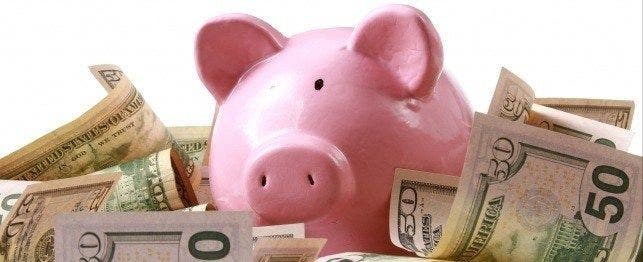
How to Save Money on Dog Care
Like our children, we give our dogs our hearts, our time, and … our money. Lots of money. In 2005, American pet parents spent $36.3 billion dollars on their furry friends. For many of us our pets are priceless, and we enjoy spoiling them with toys and treats; however, no one can pass up the opportunity to save some money.
Below are suggestions to help you save money on pet care. Perhaps you can set aside the money you will save for use on a pet emergency or as a donation to a local shelter.
Shelter Dogs
Adopt a dog from the shelter. Rescued dogs are significantly less expensive than a dog from a breeder. Shelter animals are typically spayed or neutered, vaccinated, and licensed before adoption, reducing some initial pet costs. Also, some people feel that mixed breed pets are healthier than purebred dogs, possibly reducing future vet costs. Another option is to adopt from a breed rescue group. You can get the purebred dog at little cost.
Health Care
Do NOT go “cheap” on health care. Proper, quality health care is essential to the well-being of your dog. Find a reputable veterinarian, take his or her advice, and practice preventative care, and you will safely save money in the long term on dog health care. For example, it is much less expensive to prevent fleas than to treat a flea infestation.
Consider pet insurance. For a small, worthwhile, monthly fee, health insurance for your dog can cover the cost of preventative medicine and the treatment of illness and injury.
For major health problems, consider taking your pet to a teaching hospital / veterinary college. Often costs are not as extreme in these facilities, because patients are in high demand to teach students. These hospitals also utilize state-of-the-art procedures and medicines, which may be experimental and less expensive.
Spay and neuter. Spaying and neutering will reduce or prevent your dog from straying from your home, reducing injuries, disease, and unwanted pregnancies. Spaying and neutering also reduces the risk of some cancers and infections.
Vaccinate. The cost of vaccines is much cheaper than treating the diseases they prevent.
Ask your veterinarian to show you how to do some of the routine dog care procedures, such as trimming nails, cleaning ears, brushing teeth, and expressing anal glands. Regularly performing these maintenance procedures will reduce your trips to the vet clinic.
Accessories
Your pet truly does not care about the brand or cuteness of his toys. Be creative. For dogs, visit garage sales and purchase kids’ stuffed animals, cut off loose pieces, such as plastic eyes, and give Fido a much less expensive furry toy. (Consider your pet’s specific needs, as some pets, especially tough chewers, do best with specially made pet toys.)
Before paying big bucks, evaluate why you are buying extras, such as dog clothing or fancy collars. Does your dog really need that Coach collar?
Food
Food is another category where it does not pay to go “cheap”. Generic or low-quality foods often do not provide the nutrients your pet needs, which may lead to future expensive health problems. Your dog can eat a smaller amount of a high quality food than a lower quality food, again reducing cost.
Another way to reduce food cost is to buy large bags of foods, rather than their more convenient to transport counterparts. If your dog cannot eat a large bag of food in a timely manner, try freezing a portion of the kibble.
Take Classes
The Red Cross offers pet first aid courses. Sign up for these classes, learn how to administer first aid to help your pet through times of minor injury, and save on vet bills.
Take a grooming class, or read a how-to book about grooming to save costs on maintaining your long haired pets.
Look for Deals
Shop for pet supplies through wholesale catalogues, such as PetEdge. This will save you the middle-man mark up of pet stores.
Your veterinarian and other pet businesses may have specials during pet awareness periods. February is National Pet Dental Month, the second week of May is National Pet Week, and October is National Pet Wellness Month.
Save for a Rainy Day
Saving money where possible on dog care can help you prepare for a major pet expense, such as a life-threatening emergency. Setting aside money and/or a credit card will prevent stress and likely save your dog’s life. When it comes to a situation like this, you will be thankful that you spent your money responsibly so that you could afford to have your dog around for many years.